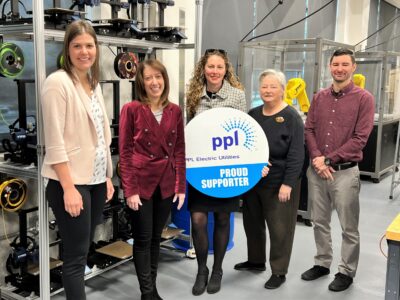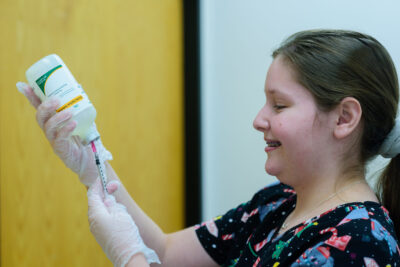Recently, Mike Yushinski ’95 and his wife Melissa Yushinski ’11, both Johnson College alums and owners of Mike’s Welding and Industrial Services in Clarks Summit, PA, donated a 2011 2500 Mercedes-Benz Sprinter van to Johnson College in memory of the company’s foreman and fellow Johnson College alum, the late Gary Muckin ’84.
Johnson College will use the donated van in community building trades technology services, and campus projects.
Photo Caption:
Mike’s Welding and Industrial Services in Clarks Summit, PA, donated a 2011 2500 Mercedes-Benz Sprinter van to Johnson College in memory of the company’s foreman and Johnson College alum, the late Gary Muckin ’84. Left to right: Mark Chappell ’92, Senior Maintenance Mechanic, Johnson College; Karen Baker, Sr. Director of College Advancement, Johnson College; Melissa Yushinski ’11, owner of Mike’s Welding and Industrial Services; Mike Yushinski ’95, owner of Mike’s Welding and Industrial Services; and Roger Orlandini, Associate Vice-President of Facilities and Campus Projects, Johnson College.









